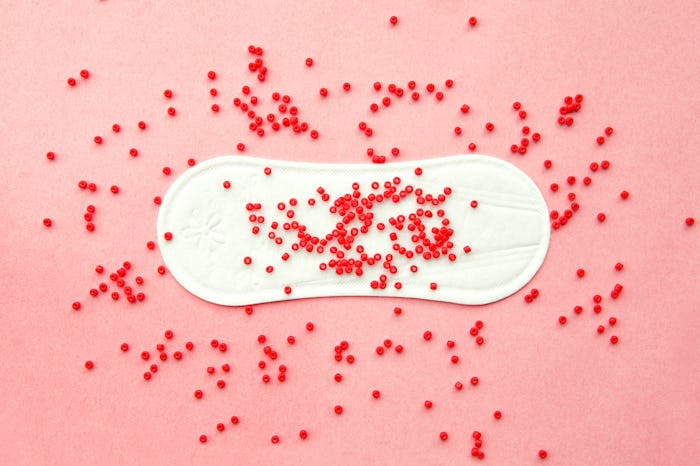Women have been getting their periods since the dawn of time and it's still an issue millions of people don't like to talk about. It seems to make people squeamish or uncomfortable or whatever. But right now, at this very moment, hundreds of millions of women and girls are menstruating around the world. For some women it's a bit of an inconvenience, but for many of them it's an issue that holds them back in life. Because period poverty is real and it's happening everywhere, according to a new survey by the period-tracking app Flo Health.
The company surveyed more than 200,000 women across the world through its app to coincide with National Period Day on Oct. 19. These women come from all walks of life, living in 219 different countries and speaking seven languages. But they all have this one powerful thing in common: they all get their period.
Flo Health decided to ask the women questions that would help shed some light on common misconceptions, stigmas, and barriers surrounding their periods, and their answers were illuminating. It seems that even in 2019, women all over the world are experiencing period poverty, which happens when a woman or girl is not able to access menstrual hygiene resources and finds herself limited from going to school or work. Some of these women find themselves reduced to using things like rags, newspapers, plastic bags, and socks to deal with menstruation, according to UN Women.
While one-third of the women in the research believed that period poverty only happened in developing countries, the reality is that it affects women in every country. A February 2019 survey by Flo Health found that 500 million women and girls around the world have to struggle with period poverty every single month. This inhibits these women in ways that extend far beyond their period; if girls can't go to school because they don't have access to menstrual hygiene products, they can fall behind in their studies. The same theory applies to women in the workplace. Even in economically developed areas like the European Union, sanitary products are still taxed as a "luxury item," according to The Telegraph, and the cost can be prohibitive to lower-income women and girls.
Beyond period poverty, there remains a seriously pervasive stigma about menstruation. Less than half of the women surveyed said they were comfortable discussing their period in public, while 20% of women admitted they have been period-shamed. This was not helped by the fact that 60% of respondents said they had bled through their clothes at some point; in the United States, that number jumped to 4 out of 5 women.
Education remains key when it comes to trying to end the stigma surrounding periods. Almost all of the women in the survey (64%) said they first learned about menstruation from their parents, which means that common misconceptions could potentially be passed through generations. A small percentage of women still believed, for instance, that women can't get pregnant on their periods or that period sex is unhealthy for menstruating bodies.
Perhaps it's time in 2019 for women to feel as though we can talk about our periods like it's a normal thing. Educate young girls, make sure they have access to resources. Change the world one month at a time.
